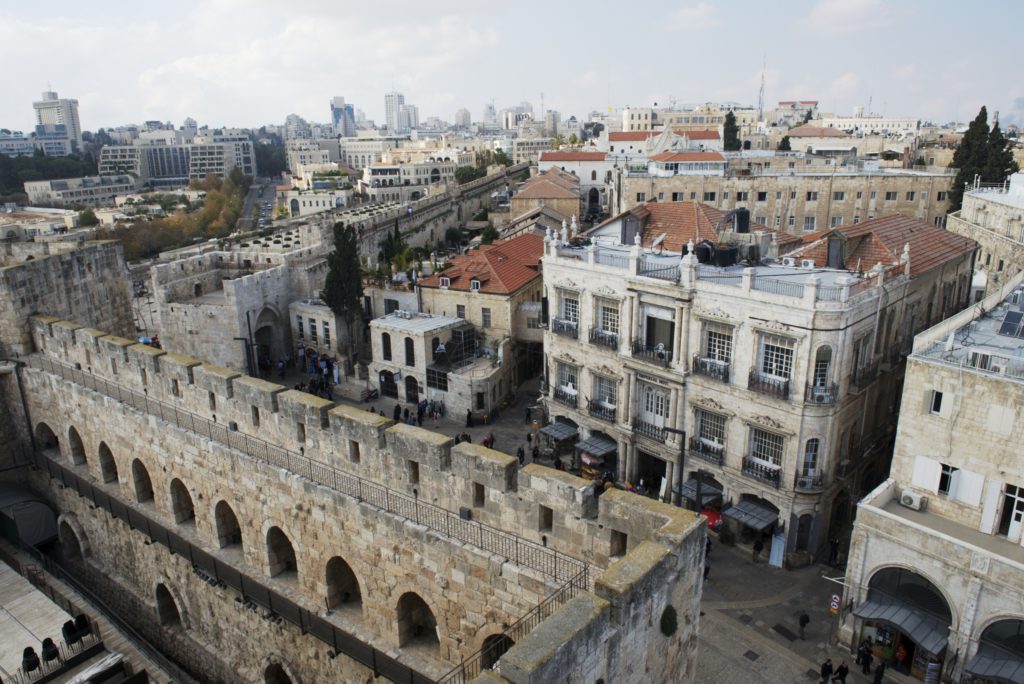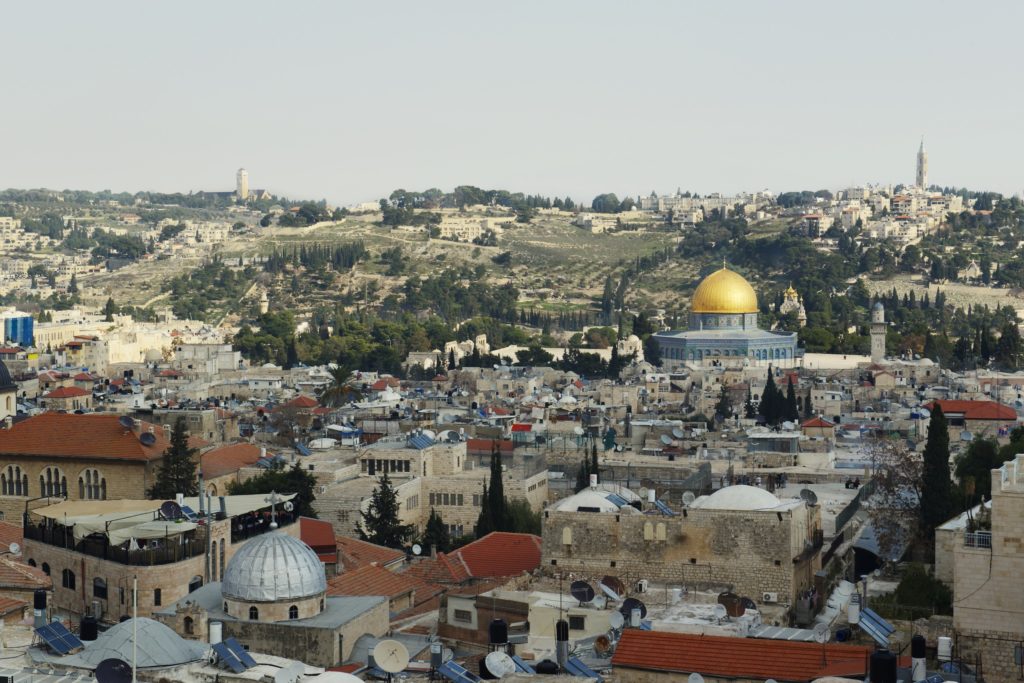Israel and the Church
What is the connection between Israel and the Church? In this article’s context, Israel means the Jewish people. Everything that God has done for the Church, He has done for Israel, and vice versa.
Our calling and potential are equivalent, even if our hearing and responding to that calling is not.
Israel and the Church are still divided. This point must not be underestimated. However, what divides us is not even the belief in Messiah, so much as the Messiah’s identity.
This should resonate with those who believe that Israel today is part of god’s work and plan. Both Israel and the Church stand before our heavenly Father in a similar place. We are both called to belong to God’s Kingdom, but neither of us has arrived yet.
Download your FREE ‘God’s Perfect Plan’ PDF
Similarities and Differences of Israel and the Church
Christians are confronted with what the New Testament calls a ‘mystery.’ Paul’s teaches that Israel and the Church are called to togetherness.
“…Through the gospel the Gentiles are heirs together with Israel, members together of one body, and sharers together in the promise in Christ Jesus” (Ephesians 3:6).
We are both called to show God’s glory in the world. However, we are also both weak and imperfect, as Rev. David Watson explains in his book titled
“I Believe In the Church”:
“It would be wrong to identify the kingdom of God with the church, or even to talk of the church as ‘the present form of the kingdom of God.’ The full power and glory of God’s kingdom are yet to come, and the church must continually press towards this ideal.
“Indeed the striking and humbling differences between the existing church and the coming kingdom need consistently and painfully to be brought into the light. “And the renewing and re-shaping of the church as a result of this exposure should always be a matter of prime importance. Only then can God’s glory be seen in the church, and through the church to the world.” (Watson 1978, p51-52)
The Kingdom for Israel and the Church
What struck me about this quote is that we could repeat this whole paragraph substituting ‘Israel’ in place of ‘the church’. The hope for the establishment of God’s Kingdom is shared by both Jews and Christians.
But this is also where we differ as we encounter Jesus Christ. He is simultaneously the basis both of unity and division for Israel and the Church.
Christians say, and must say, that the Kingdom of God is among us, at least in part, because Christ has come and His Holy Spirit is with us. We see pockets of instances where God transforms lives or communities, heals people and leaves us lost in worship, awe and wonder – “Look, the glass is half full!”
At the same time, Jewish people (rightly) point out that we were promised a redeemed and restored world and an era of universal peace. And they are conspicuously absent from Israel and our world as a whole.
The Kingdom, Messiah, and the Messianic age have not yet arrived. The pockets of God at work are still pockets and not the full realization of His promises – “No, the glass is still half empty.”
The Point of Contention
It may well be that the tipping point between our assessments of the world is over the question of the resurrection.
If Jesus is alive and risen, then we know that all else follows. Our faith necessarily must be based more upon hope and anticipation than on realization. Both halves of this picture are important. We must encounter the risen Christ.
Without the reminder that the Kingdom is “Not Yet” we risk becoming detached from reality. Without the message that the Kingdom is also Now, the task of maintaining faith and hope is much harder. Like a growing seed, the Kingdom is in the process of coming, and we know it will come.
The major difficulty we face is in identifying it – noticing where God’s Hand is at work. What is of Him and what is not? In this area we all struggle. Recognizing where God is at work may be as much about time and place as with what God is doing. The disciples discovered this.
Restoring the Kingdom to Israel
Luke tells us at the start of his second volume, Acts, that Jesus spent forty days after His resurrection teaching his disciples about the Kingdom of God. On one occasion, while he was eating with them, he gave them this command:
‘Do not leave Jerusalem, but wait for the gift my Father promised, which you have heard me speak about. For John baptized with water, but in a few days you will be baptized with the Holy Spirit.’
Then they gathered round him and asked him, ‘Lord, are you at this time going to restore the kingdom to Israel?’
He said to them: ‘It is not for you to know the times or dates the Father has set by his own authority. But you will receive power when the Holy Spirit comes on you; and you will be my witnesses in Jerusalem, and in all Judea and Samaria, and to the ends of the earth.’ Acts 1:4-8
The Land of Israel in the New Testament
It is clear from the context that what they had in mind when they asked Jesus about the restoration of the Kingdom was a political restoration of the nation of Israel. It was in the form of an earthly kingdom, freed from their Roman overlords.
After meeting the resurrected Jesus in all His glory, surely this would be a mere formality now – the icing on the cake!
As one of very few references in the New Testament which hints at the ongoing status of the land of Israel, these words of Jesus have been heavily scrutinized in recent years. Two mirrored interpretations have emerged of His answer, “It is not for you to know the times or dates the Father has set by his own authority”.
Two Interpretations
One claims that Jesus affirmed the expectation of the disciples about the political restoration of the Kingdom to Israel. He was just teaching that they simply could not know the timing – ‘no, not now, but later’.
The second claims that Jesus was redirecting their attention to what God is going to do. That is because they had not understood what the Kingdom of God is or, therefore, what it meant for the Kingdom to be restored to Israel – ‘no, a geo-political restoration is no longer on the agenda’.
Actually, the second interpretation finds little basis in Jesus’ words, but derives from interpretations of Jesus’ teaching elsewhere about the Kingdom of God. Jesus here did not deny or diminish the expected restoration of a political kingdom for Israel. It had been central to prophetic and messianic expectation.
Political Restoration for Israel
Something of political restoration is essential to the Jewish (and Scriptural) concept of ‘salvation’. For example, Luke tells us that Zechariah, father of John the Baptist, was filled with the Holy Spirit when he prophesied in these terms:
He has raised up a horn of salvation for us in the house of his servant David (as he said through his holy prophets of long ago), salvation from our enemies and from the hand of all who hate us. (Luke 1:69-71)
‘Salvation from enemies’ implies real people, probably with swords and armies. Nevertheless, it is equally clear that Jesus was changing the subject and directing His disciples to a broader understanding of a Kingdom. This was something which they had not perceived, which was both Now and Not Yet.
“Salvation from our Enemies”
This aspect of the Kingdom must also be distinguished from the ‘salvation from our enemies.’ This is sometimes known as the promised political restoration of Israel to the land. This remains part of the bigger picture. However, it has to do with the coming of the Holy Spirit!
No human institution can be identified with the Kingdom of God. This can’t be either the church (whether local, denominational or even universal) nor the State of Israel. Being God’s people is a synonym of being part of God’s Kingdom. God’s Kingdom is made up of His people who recognize His sovereignty and His rule.
Consequently, being God’s people and being part of God’s Kingdom starts in the heart, with a grain of faith. Faith grows into obedience to God: a change in our lives which should then set God’s people apart and makes us effective Kingdom-subjects.
Israel and the Church and God’s Kingdom
When John the Baptist came to Israel he called out to the people and told them, “The time has come. The kingdom of God has come near. Repent and believe the good news!” (Mark 1:15)
In other words, have faith in the good news of God’s Messiah and obey Him, or possibly ‘obey Him and have faith’. We needn’t be too rigid about the order, so long as we have both in the end.
There is a progression and we are all works in progress.

In a manner of speaking, we are both God’s people and subjects of His Kingdom (Now). In another, none of us are (Not Yet) because we deny Him when we still frequently disobey.
Part of the Not Yet is that there are still ‘enemies’ to overcome. We have to face opposition in the world and within our own hearts, too.
The promise of the Kingdom of God transforms those enemies’ hearts. There are no more enemies to face. The disciples had trouble grasping this at first.
In other words, the Kingdom may lead to the same geo-political restoration for Israel. Albeit via a radically different route from the way of force, conquest or annexation. In Christ we receive assurance that we are called and belong to that Kingdom.
Israel, the Church and the Messiah
The fact that Jesus is Israel’s Messiah assures us that the Jewish people’s call remains and that they ultimately belong, too. So, if Israel (the restored State) is not identical with the Kingdom of God, what can we say about it today?
We have witnessed the restoration since 1948. It largely resembles and parallels the restoration which God permitted at the time of Ezra and Nehemiah. It was prayed for, requested, and subsequently established diplomatically by external powers.
Neither in the 4th Century BC nor in 1948 did Israel defeat an occupying power. Whereas when the disciples asked Jesus about the kingdom, it would have necessitated defeating Rome.
A Fulfillment of Prophecy
A nation state was granted in both instances in accordance with the Word of God – we might say as “fulfillment of prophecy.” In both cases trouble, complex problems and opposition followed.
That was part of the process. God’s ongoing challenge is for us to invite His Kingdom to fully infiltrate Israel, the church and the whole world.
Israel was, and still is, called to be the prototype and example for all other nations to follow. In some ways it succeeds and in others it fails, but what sets it apart from other nations is its calling to that role – with the side effect that it faces greater publicity, attention and scrutiny.
Israel and the Nations
Although modern Israel has greater sovereignty than it did in the First Century, it is important to remember amid the challenges of existential threats, the best is still to come!
It is for this reason I suspect today the disciples might have easily still asked Jesus the same question: “Lord, are you going to restore the Kingdom to Israel?”. And Jesus might well have given them the same answer.
When Jewish people make Aliyah (immigrate) to Israel, life can threaten to be more challenging than it is rewarding. There is a new language and culture to learn. Jobs can be hard to come by. Controversy and violence are not far away.
Many do not know much about the biblical promises. Sadly, we cannot simply place them into the midst of the Kingdom of God.
What we can do is show that we care as we work to bless them.
The Church’s Calling to Bless Israel
In some cases blessing Israel can involve literally saving lives. In others, it involves transforming them by providing humanitarian aid. It can involve enabling marginalized Jewish people to receive further education and vital services.
It is rarely successful to simply tell the Jewish people about the Kingdom of God. We need to show it to them by answering Jesus’ call.
This means bringing the Kingdom Now into the lives where the Kingdom is still overwhelmingly Not Yet.
David Watson was able to write “I Believe In the Church” because he knew the promises in the Scriptures. He cared about God’s people immensely. We can similarly say, “We believe in Israel”, because we likewise stand upon God’s promises and we care.
We see Jewish people who are unspeakably precious to God, returning to the place uniquely symbolic of God’s presence. One day Christ will return there to reign as the King of Kings and Lord of Lords.

God’s Perfect Plan – From Israel to You: Free PDF Download
The Bible is full of God’s promises that can encourage our faith. Together, these promises make up one master plan of God.
You’re about to discover God’s perfect plan through the lens of 25+ references throughout Scripture.
Articles Related to God’s Plan for Israel
Estimated reading time: 11 minutes
